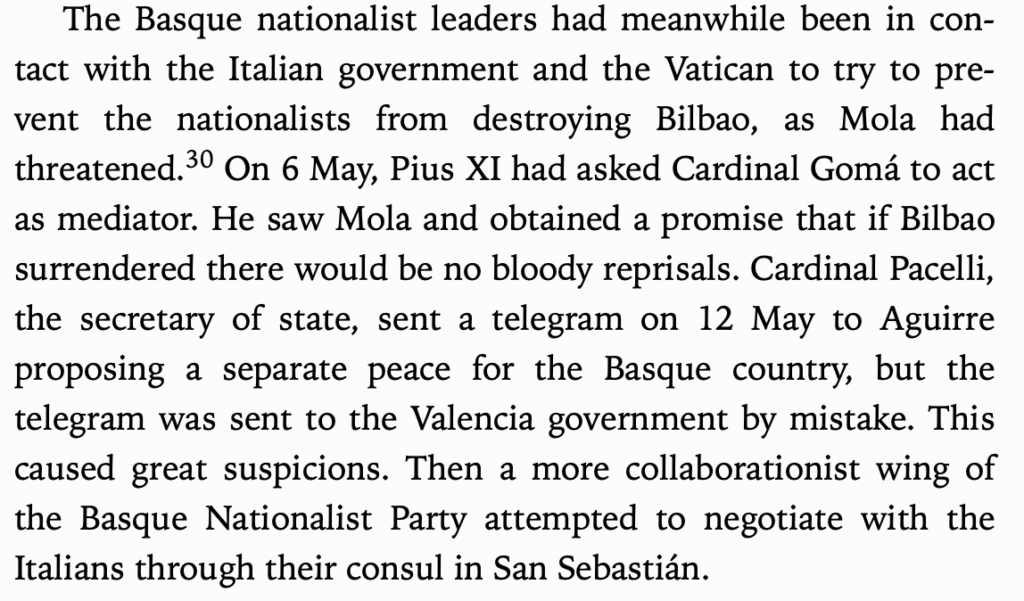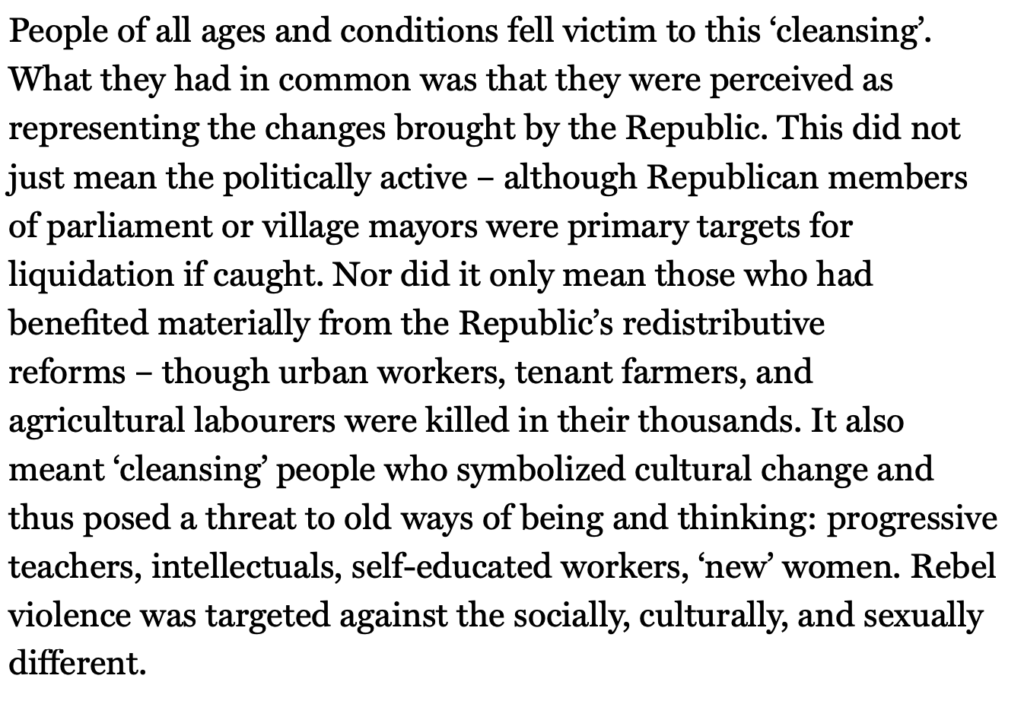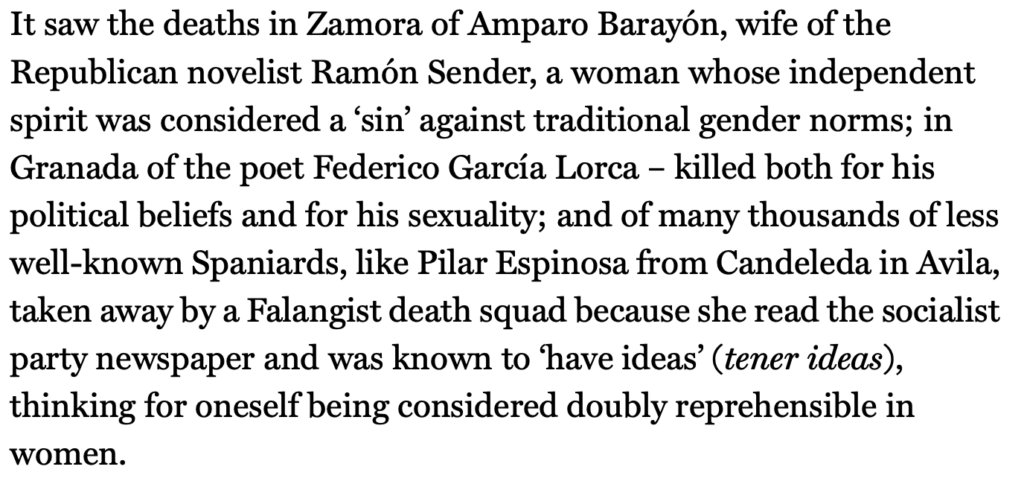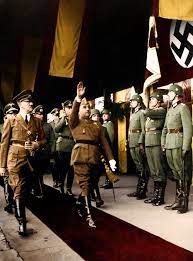- Was the Spanish Civil War a cause of the Second World War?
- Franco and the Second World War
- Peacemaking
- Impact on Spain
Was the Spanish Civil War a cause of the Second World War?
Allies
Axis
Franco and the Second World War
- After the fall of the Germany in 1945, Franco began to write his own narrative of his actions during the Second World War. He was a diplomatic genius, keeping Spain out of the war despite pressure from the Axis and even the Allies. His hagiographers communicated this for the decades whilst he was in power. However, this is not the entire truth!
- Franco fleeted with the idea of joining the Axis on several occasions. He saw the booty of Gibraltar and North African colonies as key reasons to take Spain into a global war. However, Hitler did not realistically want him to join, it would too expensive for Germany to train and equip Spain’s armed forces to a level of his own. The infrastructure of the country was years behind Germany so the cost of improving this was simply too much. Furthermore, he wanted Vichy France on his side, allying with Franco with his imperial designs on Africa would endanger this. Finally, Preston explains that Hitler really didn’t like Franco, he was too slippery and would not keep to deadlines or make promises.
- The Spanish Blue Division were volunteers who helped the German Army. There were also tens of the thousands of labourers who worked in Germany to support their economy. Franco even offered one million soldiers to help defend Germany against the Bolsheviks…but Hitler saw this as just bluster. Franco’s own chiefs of staff were against Spain joining the war as the country had just emerged from a civil war and the economy was in a poor state. It is possible that Franco knew of the internal problems and knew the risks of forcing the country into war – he could face a coup himself!
- Franco believed in the global Jewish/Bolshevist conspiracy and took his own part in Hitler’s Holocaust, persecuting Spanish Jews. This was also denied after the war by Franco. Instead, in 1945 Franco took in Jewish refugees and he made a huge deal out of this. But the western powers did not fall for his lies. Arguably, Franco was fortunate that the Cold War began and the West did not punish Spain in case it became communist.
- Furthermore, the British government paid millions to some of Franco’s political and military leaders (he denied any knowledge of this but his brother in law was one of the beneficiaries) to keep them either neutral or an ally. Corruption was rife in both the military and the political system. Franco’s cronies and supporters made themselves rich by taking aid from both the Axis and Allies. Preston explains that the corruption was so bad even Juan March complained!
- Wolfram, a key material for steel, was continually traded with Germany despite the British paying them to remain neutral.
Peacemaking
- Both Anthony Beevor and Helen Graham explain how the Basques tried to agree a separate peace with General Franco. The Vatican, rather than the leaders of the Spanish Catholic Church, were the intended mediators. But for different reasons, the negotiations failed.


Impact on Spain
Perhaps the biggest impact on Spain were the casualties, approximately 500 000 from the war. But the deaths caused by politics did not end in 1939. Under Franco, tens of thousands of ‘opponents’ were killed in order to consolidate his position as dictator of Spain.
Political
- Despite Franco’s arguments that he did not have any deals with the Axis Powers during the Second World War, the Allies refused to believe him. As a result, Spain was not allowed to be a member of the new United Nations in 1945. Furthermore, she was not permitted to receive funds from the Marshall Plan in 1948 although due to the onset of the Cold War (Franco was against Communism), the US changed their mind in 1951.
- Franco ruled as dictator until 1976. He maintained his position by ‘saving’ Spain from communism.
- Large numbers of the intelligentsia (scientists, academics, doctors) left the country, they either refused to live under Franco’s regime or were Republican supporters – which became a crime from 1939. Franco’s purge of Republicans continued late into the 1940s.
- The Latifundia returned to influence in Spain, and trade unions such as the UGT and CNT were abolished. The Catholic Church regained its power too, arguably more so than before the civil war. However, the army lost a lot of its influence in Spanish politics, especially after 1956 when Morocco established its independence.
- But all power became centralised in Madrid, no longer did Catalonia and the Basques have a chance of independence and only Spanish was the legal language. This partly explains why Barcelona and Real Madrid have such as intense rivalry today.
- Helen Graham argues that the parts of Spanish society which had moved away from traditional thinking were targeted during the war. Some moved out of the country and into others such as France but those who remained were either killed or repressed. This would have an effect of the social, economic and political progress after the war.

- Paul Preston explains that Franco developed a cult of personality during his reign, he was the hero who won the war and was adept at playing both the Axis and Allies during the Second World War, he was able to gain resources from each but not commit to war.
Economic
- The country’s economy fell by up to 15% due to the war. Industry suffered and inflation was still high because too much money was printed off to pay for the war. Furthermore, the Republican government had used the country’s gold reserves to pay off the Soviet Union in return for military aid. This, and Franco’s debt to both Germany and Italy for the same reason, meant that Spain was in a poor state economically in 1939. Interestingly, these debts were only paid off during the 1960s.
- Around 400 000 people fled the country after Franco took power, causing a brain drain and a refugee crisis too.
- Franco reversed the land reforms which earlier governments had passed.
- Hitler made Franco pay back the loans he had taken from Germany to win the war. These could be paid in food (olive oil especially), materials (wolfram) or money. Obviously, this meant that the Spanish people went without these resources for periods of the war.
- After the Second World War, Spain’s industrial output was lower than than in 1918. However, the country was helped by Argentina owing to the fact Franco was still in a degree of isolation (see ‘Political’ above).
Women
- Traditional roles for women were reinforced after Franco was victorious in 1939 – divorce became illegal and schools taught domestic curriculums for girls. This despite them serving as soldiers for the Republican side and working in factories in their territory too.
- For more information on the role of women during the war, click here.
- Helen Graham explains how the rebels attempted to ‘cleanse’ the country of ‘alien’ influences. As part of these actions, some women were targeted just because they did not adhere to conservative traditions.

Territorial Changes
- The Nationalist victory in 1939 had an impact on European diplomacy and strategy. Stephen Lee argues that Hitler was able to agree the Anschluss with Austria in 1938 owing to the fact that Italy was focused heavily on the Spanish Civil War…remember that Mussolini was hostile to the Germany and Austria joining together in 1934.

